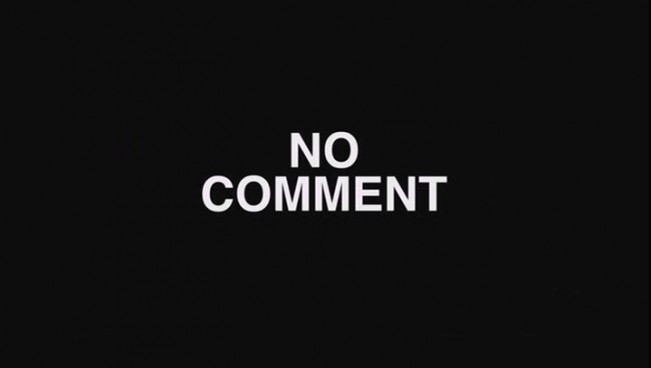

By Ray Pride Pride@moviecitynews.com
DVD: Godard’s FILM SOCIALISME
Eighty-one-year-old Jean-Luc Godard’s Film Socialisme is a disarmingly beautiful rash of video imagery that ranges from HD in gleaming blues on a luxury liner late at night to cell-phone images that stutter, blanch and bleed, accompanied by murmorous dialogues turning over familiar political idées fixe and the crisp musique concrète-style sound mixes of his work of the past three decades. The electric charge of the colors is splendid on Kino Lorber’s Blu-Ray edition, released January 10. (The ship, the Costa Concordia, ran aground on January 13, killing several passengers and crew members; see image below the fold.)

Godard hectors and cryptographs, finding an expressive character for his digital video palette with a more refined touch a decade ago, as in his 2001 Eloge de l’amour, but with less engagement than in the recently-reissued Sauve qui peut (la vie) (1980), shot on 35mm film, which works its metaphors of self-loathing, prostitution and misogyny with grave intentness. Film Socialisme is more like sketch comedy for a certain straineof cinephiles, far less dense than the obsessive and potted essay Histoires du Cinéma (also now legally available on video in the U.S.), those who react to colors and edits and gestural repetitions and thematic fixations, but not those who struggle to cipher a story from fragments. Godard’s latest fractured fairytales are also filmmaking as sculpture, expressive through collage and not the verities of theater and text, film as a corrupted dream. (Oh! The nineteenth century!) While spoken in French and German, among other languages, Godard’s bad-faith subtitles for American audiences consist mostly of nouns, and he describes the translation as “Navajo,” or an emulation of how Native Americans were made to speak in Hollywood Westerns. (Koch-Lorber’s edition offers a choice between full subtitles and “Navajo.”)
 It’s fantastic essay-making, sometimes dotty in its spotty reasoning, but formally savoryl. Who’s it for? Ending the film on two cards—a defaced FBI copyright warning and the words NO COMMENT—Godard blatantly does not give a fuck.
It’s fantastic essay-making, sometimes dotty in its spotty reasoning, but formally savoryl. Who’s it for? Ending the film on two cards—a defaced FBI copyright warning and the words NO COMMENT—Godard blatantly does not give a fuck.
The distributor offered an interview with Godard from “Sud Rail Magazine” by one “Renaud Deflins,” who may or may not exist. Excerpts:
Q production, distribution, exploitation?
A since the end of the big studios, after the Second World War, the order was inverted, with the aristocracy henceforth coming first, and the ” third estate ” last.
Q cinema and films – the difference?
A the same, cinema is not necessarily to be found in films.
Q 3D?
A very quickly, the dimension of time has disappeared and space flattened, cinemascope, l6:9
Q and copyright?
A we forget that Beaumarchais’ real problem wasn’t retaining ownership of “The Marriage of Figaro “, but simply getting his share of the receipts.
Q blogs and SMS?
A in a way, behind this young thinking similar to an earthworm, one thing matters to all these passionate Phoenixes: to survive and find in the depths of chaos a chance to resurrect (cf. Prigogine).
Q politics again?
A yes, as modern democracies, by rendering politics a domain of separate thought, are predisposed to totalitarianism.
Q and images?
A the old magus Bachelard spoke about implicit and explicit images. We might cite Jules Renard’s image of silence: snow falling on the water.
Q a vision of the future?
A even with Final Cut, the most humble or most arrogant of editors is in prison, bound to the past as to the future and must deal with it for the present. Only cinema reproduces this human work.
Q a last film?
A nothing more than a title: “Farewell to Language.”


















I hope he will be a good character reference for Francesco Schettino, the ship’s captain. CEOs walk, captains pay.